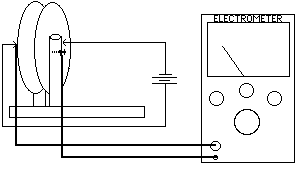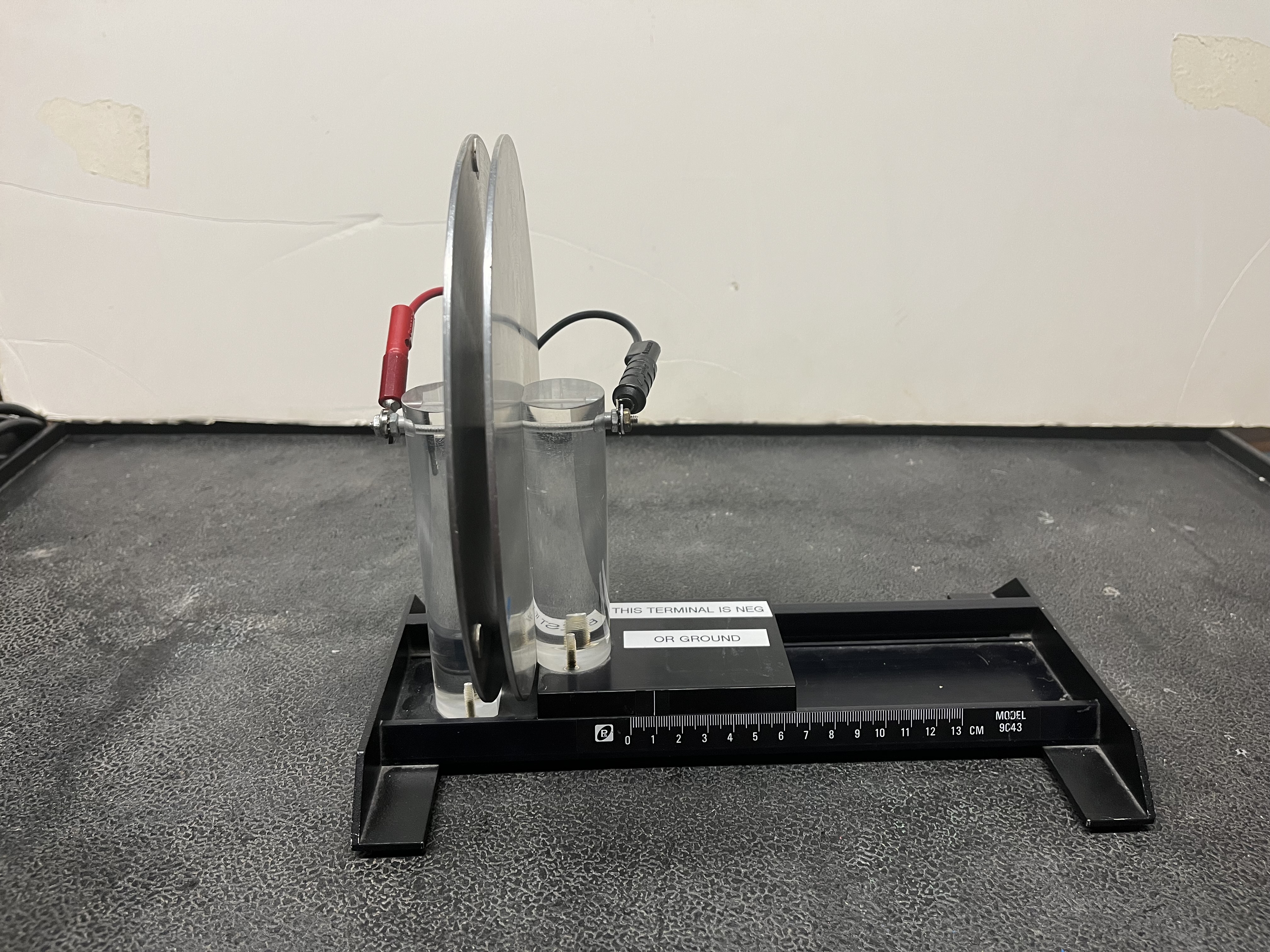Difference between revisions of "Parallel Plate Capacitors"
From UO Physics Demonstration Catalog
(Created page with "{{NewDemo|subject=Electricity and Magnetism|topic=Capacitance|file1=Parallel Plate Capacitors.gif}} Large (20 cm.) plates mounted to allow any separation distance from 1 to 120 mm. (includes indicator scale). Capacitance from 2.3 to 280 pF. The capacitor is connected to an Electrometer and then charged with a battery. Slowly moving away one of the p lates decreases the capacitance and the voltage measured by the Electrometer will increase. A piece of plexiglass can be u...") |
|||
| (One intermediate revision by one other user not shown) | |||
| Line 1: | Line 1: | ||
{{NewDemo|subject=Electricity and Magnetism|topic=Capacitance|file1=Parallel Plate Capacitors.gif}} | {{NewDemo|subject=Electricity and Magnetism|topic=Capacitance|file1=Parallel Plate Capacitors.gif}} | ||
Large (20 cm.) plates mounted to allow any separation distance from 1 to 120 mm. (includes | Large (20 cm.) plates mounted to allow any separation distance from 1 to 120 mm. (includes scale). Capacitance from 2.3 to 280 pF. The capacitor is connected to an Electrometer measuring the potential difference across the plates. Connect the (-) ground lead from the Electrometer to the movable plate for best results. Charge the capacitor with a 9V battery. Slowly separating the plates decreases the capacitance and therefore the voltage measured by the Electrometer will increase. This shows that the work done by separating the charged plates increase the Potential. A piece of plexiglass can be used to demonstrate a dielectric, however, it is very hard for the dielectric not to be charged. Putting an insulator between the plates has unpredictable results, but shows the concept of adding a dielectric. | ||
'''Location: | '''Location: | ||
| Line 7: | Line 7: | ||
* Capacitor: Shelf I-2 | * Capacitor: Shelf I-2 | ||
* 9 volt Battery: Drawer 69 | * 9 volt Battery: Drawer 69 | ||
* Electrometer: Shelf K-2 | * [[File:Capacitor Pic.jpg|thumb]]Electrometer: Shelf K-2 | ||
* | * | ||
Latest revision as of 14:13, 10 April 2023
Return to Capacitance
Description:
Large (20 cm.) plates mounted to allow any separation distance from 1 to 120 mm. (includes scale). Capacitance from 2.3 to 280 pF. The capacitor is connected to an Electrometer measuring the potential difference across the plates. Connect the (-) ground lead from the Electrometer to the movable plate for best results. Charge the capacitor with a 9V battery. Slowly separating the plates decreases the capacitance and therefore the voltage measured by the Electrometer will increase. This shows that the work done by separating the charged plates increase the Potential. A piece of plexiglass can be used to demonstrate a dielectric, however, it is very hard for the dielectric not to be charged. Putting an insulator between the plates has unpredictable results, but shows the concept of adding a dielectric.
Location:
- Capacitor: Shelf I-2
- 9 volt Battery: Drawer 69
- Electrometer: Shelf K-2

